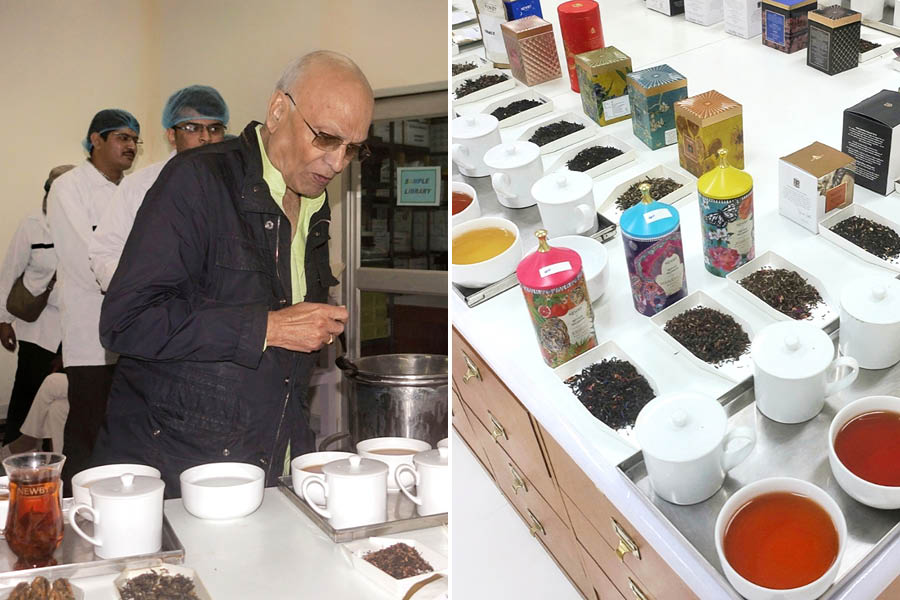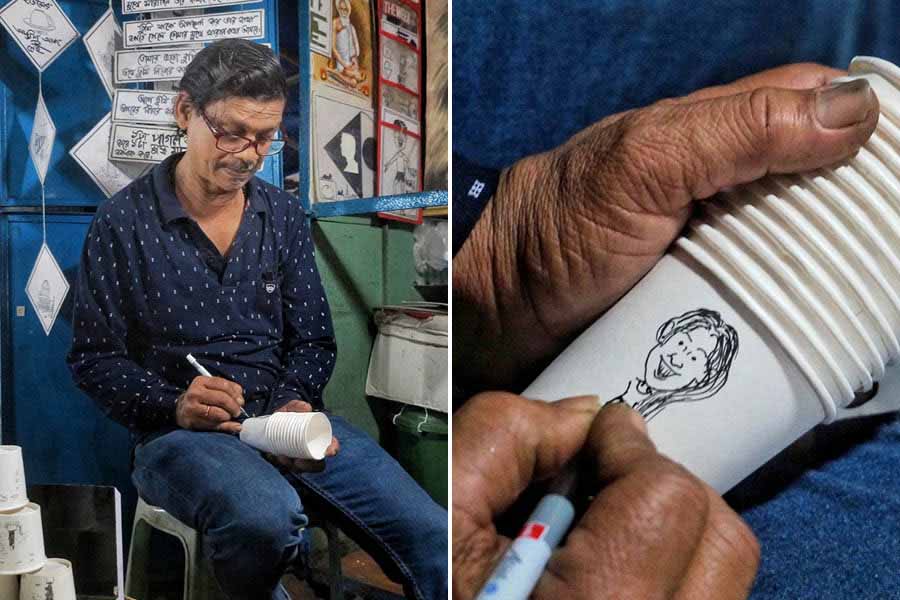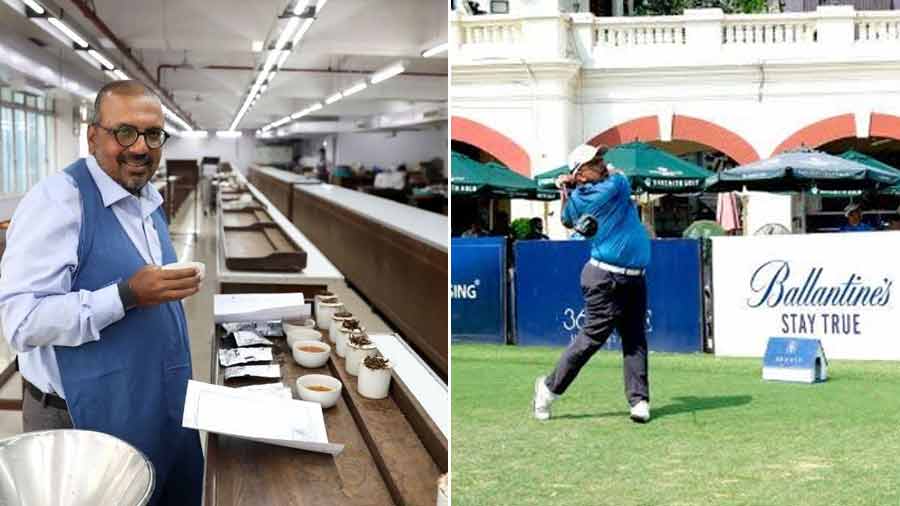In a world flooded with mass-produced beverages, Newby teas, established in the year 2000, in London, aims to revive the elegance of fine tea and make the world fall in love with it again. And leading this revival is Nirmal Sethia, an entrepreneur committed to excellence. Born in Kolkata, he moved to London at a very young age. Sethia’s passion for preserving tea’s rich heritage led to the founding of Newby, marking the beginning of a journey that would redefine the luxury tea industry.
Newby sets itself apart by sourcing tea leaves from the first and second flushes of the season. Every leaf is chosen to capture the unique taste of its origin. These teas undergo intense processing at Newby’s state-of-the-art facility in India, strategically located amidst the world’s finest tea-growing regions to maintain their quality. However, the final stages of storage, blending and packing are completed at a production facility in Joka, Kolkata.
Newby teas does more than just offer quality teas — it preserves the culture and history of tea. Under Sethia’s leadership, the brand acquired the Chitra Collection, the world’s largest privately owned historic tea wares assembly. Furthermore, Sethia’s influence extends through the N. Sethia Foundation, which has supported various charitable causes since 1995, reflecting his commitment to giving back to society.
Here’s a chat with the young at heart, whose teas have graced the cups of royalty and heads of states. Excerpts:
My Kolkata: As the founder of a London-based tea company, how do you tackle challenges and seize opportunities in the world's second-largest tea industry in India?
Nirmal Sethia: Newby aims to revive the culture of fine teas. Planters and packers prioritise volume and profit, forgetting the art of producing fine tea. Labour laws now reward workers based on quantity rather than quality. Essential factors for fine tea, like seed quality and suitable soil and weather conditions, have been overlooked. Teabag invention hasn’t aided in providing tea with essential antioxidants and polyphenols, crucial for boosting immunity and minimising fluoride content.
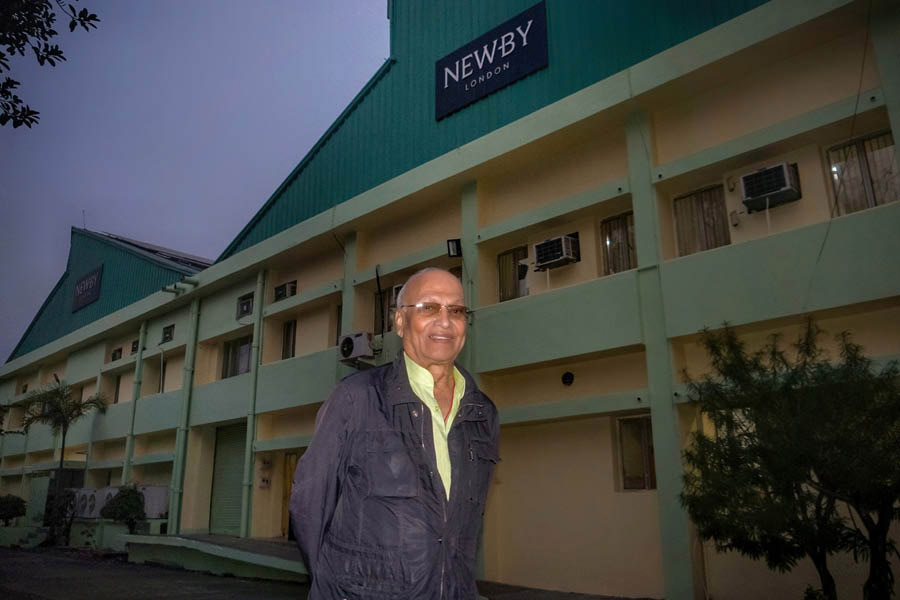
Nirmal Sethia outside the Newby teas production facility in Joka
In a world where coffee often dominates the beverage landscape, how does the tea industry, particularly your company, adapt and compete against others?
Differentiating between coffee and tea is nuanced, with each possessing its own charm and allure. As a brand focused on serving humanity, we highlight tea’s lost significance in human health. It offers extensive health benefits, prompting many to switch from coffee. We cater to this audience, offering an enriching journey into the tea world. By emphasising tea’s versatility, tradition and wellness attributes, we carve a distinct niche, appealing to those seeking a change.
How do your efforts contribute to enriching the tea-drinking experience?
Newby doesn’t compete with other brands but nurtures and preserves fine tea’s character. We prioritise taste over volume, certifying every product for EU Food and Safety requirements. Our blends undergo rigorous testing for 625 chemicals, adhering to WHO guidelines on fluoride quantity. Tea plants can absorb high fluoride levels, overlooked by many, posing health risks like osteoporosis. We strive to educate and provide safe, quality teas, sparing families from emotional and financial burdens caused by excessive fluoride consumption.
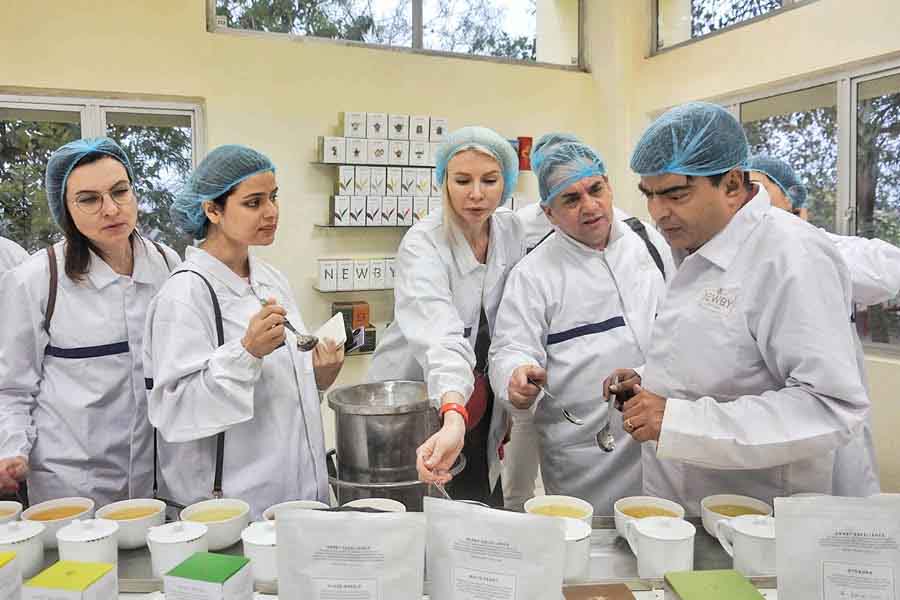
Tea enthusiasts from around the world dropped in to taste the numerous Newby teas
Herbal teas, such as hibiscus or blue pea, are gaining popularity among health-conscious consumers. How does your company approach incorporating herbal teas into its product offerings?
The global tea industry has seen significant growth, especially with the rise in demand for herbal beverages known for their health benefits. However, it’s important to note that true teas come only from the Camellia Sinensis plant, whereas herbal blends, more accurately called tisanes or infusions, incorporate flavours from various herbs, spices, fruits and flowers. Some brands add extra ingredients to enhance taste when tea quality is poor. Despite these distinctions, the term ‘tea’ is often used loosely to include tisanes and infusions. We offer a range of organic-certified wellness tisanes carefully crafted with herbs, spices and flowers.
So, what inspired you to pursue a career in this field, and how has your connection to tea influenced your approach?
Tea was my initial work assignment. My father instilled in me the value of thorough learning. I began as an apprentice at a London tea broker firm and later started a company in India, thanks to Irish buyers’ trust. My father purchased a small tea garden for me to deepen my understanding. After 18, tea became a little absent in my daily life. Chitra, my late wife, encouraged me to return to tea, calling it my first love. In 2000, I established a preservation facility with a focus on quality over quantity. A significant portion of the company now supports the N. Sethia Foundation, with all profits directed to charity and losses to the N. Sethia Trust.

The brand has also acquired the Chitra Collection, a private museum of historic teawares. Today, the collection, named in honour of his late wife, Chitra, totals almost 2000 objects
How does your company tackle sustainability and environmental impact, especially regarding energy consumption and eco-friendly practices?
Newby is a member of the Ethical Tea Partnership. We continuously access production processes to meet quality and sustainability standards. Our tea bags are certified as biodegradable, crafted from wood pulp and abaca, aligning with our commitment to eco-friendly materials. Furthermore, our Silken Pyramid bags are made from corn starch, further reducing our environmental impact. Newby is also a carbon-neutral establishment since January 2024. The majority of the energy used at our preservation and packaging facility is solar-powered.
Your teas are priced at a premium compared to other brands. How do you ensure customers see the value in your products?
Our pricing strategy reflects the meticulous attention to detail and uncompromising standards that define our brand. Our tea tasters evaluate thousands of cups from a selection of different gardens, choosing only the season’s best harvests. These factors, coupled with implementing rigorous quality control measures and investing in sustainable practices, contribute to the premium pricing of our products. We believe that quality comes at a price. Misinformation and falsification are against the working norms of the company.
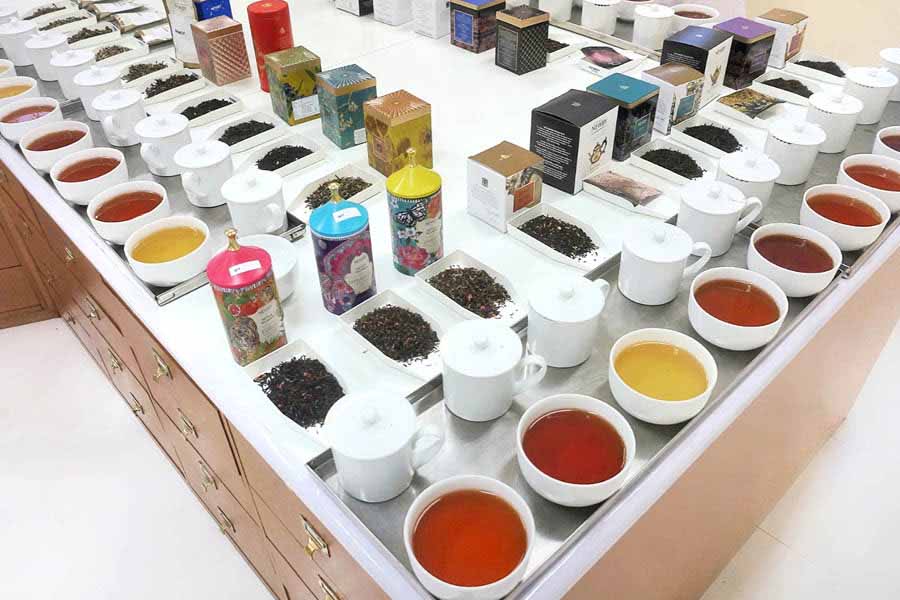
'Our pricing strategy reflects the meticulous attention to detail and uncompromising standards that define our brand,' said Sethia
What inspired your company to mix spices with tea and how do you balance tradition and motivation to create blends that appeal to consumers?
We believe, combining the right spices with the right tea creates something truly exceptional. Tea has been always valued for its medicinal properties. We believe in it and this is our motivation to create distinctive blends.
